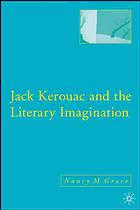
American political poetry in the 21st century PDF
Preview American political poetry in the 21st century
1403976449ts01.qxd 3-1-07 02:54 PM Pagei American Political Poetry in the 21st Century 1403976449ts01.qxd 3-1-07 02:54 PM Page ii American Literature Readings in the 21st Century Series Editor: Linda Wagner-Martin American Literature Readings in the 21st Centurypublishes works by contemporary critics that help shape critical opinion regarding literature of the nineteenth and twentieth century in the United States. Published by Palgrave Macmillan: Freak Shows in Modern American Imagination: Constructing the Damaged Body from Willa Cather to Truman Capote By Thomas Fahy Arab American Literary Fictions, Cultures, and Politics By Steven Salaita Women & Race in Contemporary U.S. Writing: From Faulkner to Morrison By Kelly Lynch Reames American Political Poetry in the 21st Century By Michael Dowdy 1403976449ts01.qxd 3-1-07 02:54 PM Page iii American Political Poetry in the 21st Century Michael Dowdy 1403976449ts01.qxd 3-1-07 02:54PM Pageiv AMERICANPOLITICALPOETRYINTHE21STCENTURY © Michael Dowdy,2007. “Mariano Explains Yanqui Colonialism to Judge Collings”by Martín Espada, from Trumpets from the Islands of Their Eviction (1987) reprinted by permission of the Bilingual Press/Editorial Bilingüe,Arizona State University, Tempe,AZ. Parts of this book have appeared in different form in the following publications: Callaloo:A Journal of African Diaspora Arts and Letters Popular Music and Society Also by the author: The Coriolis Effect:Poems (Chapbook),Bright Hill Press (forthcoming 2007) All rights reserved.No part of this book may be used or reproduced in any manner whatsoever without written permission except in the case of brief quotations embodied in critical articles or reviews. First published in 2007 by PALGRAVE MACMILLAN™ 175 Fifth Avenue,New York,N.Y.10010 and Houndmills,Basingstoke,Hampshire,England RG21 6XS Companies and representatives throughout the world. PALGRAVE MACMILLAN is the global academic imprint of the Palgrave Macmillan division of St.Martin’s Press,LLC and of Palgrave Macmillan Ltd. Macmillan® is a registered trademark in the United States,United Kingdom and other countries.Palgrave is a registered trademark in the European Union and other countries. ISBN-13:978–1–4039–7644–4 ISBN-10:1–4039–7644–9 Library of Congress Cataloging-in-Publication Data Dowdy,Michael. American political poetry in the 21st Century / by Michael Dowdy. p.cm.—(American literature readings in the 21st century) Includes bibliographical references. ISBN 1–4039–7644–9 (alk.paper) 1.Political poetry,American—History and criticism.2.Hip-hop— Influence.3.American poetry—21st century—History and criticism. 4.American poetry—20th century—History and criticism.5.Politics and literature—United States—History—21st century.6.Politics and literature—United States—History—20th century.I.Title. PS310.P6D69 2007 811(cid:2).609358—dc22 2006050995 A catalogue record for this book is available from the British Library. Design by Newgen Imaging Systems (P) Ltd.,Chennai,India. First edition:March 2007 10 9 8 7 6 5 4 3 2 1 Printed in the United States of America. 1403976449ts01.qxd 3-1-07 02:54 PM Page v To the poets of the fields, villages, mountains, city streets, stadiums, bars, clubs, prisons, rallies, and marches This page intentionally left blank 1403976449ts01.qxd 3-1-07 02:54 PM Page vii Contents Preface ix Acknowledgments xiii Introduction: Political Poetry in the United States 1 1 Embodied Agency 35 2 Equivocal Agency 77 3 Migratory Agency 117 4 Contestatory Urban Agency 153 Conclusion 189 Notes 201 References 213 Index 227 This page intentionally left blank 1403976449ts01.qxd 3-1-07 02:54 PM Page ix Preface When I began reading, writing, and studying American poetry seriously many years ago, I happened upon Adrienne Rich’s poem “North American Time” and the particularly bold, provocative lines, “Poetry never stood a chance/of standing outside history” (33). Reading these lines and the other poems in Your Native Land, Your Life(1986) set in motion the process from which this book emerged. I started considering how poetry can be political, and I began to see the ways in which poems can engage public debates about political, historical, social, and economic concerns. As my academic interests often tend, this initial inquiry led me back to my early teenage years and the development then of latent political and intellectual interests. In other words, I saw immediately the connection between the vari- eties of poetry I was studying in graduate classes and the poetry of my youth—hip-hop music. Listening to the hip-hop poets of the late 1980s and early 1990s set the foundation for my later understanding of how poetry canbe and why it shouldbe political. The dual genesis of this book thus reflects my conception of American poetry as a dynamic collection of startling different, yet overlapping, methods for transforming the world in verse. I feared initially that it would be difficult to articulate points of convergence for the two controlling imperatives of this book— printed poetry and hip-hop music as potentially sociopolitically engaged texts—but I soon realized that these forms are bound together intimately. My dedication to contemporary American poetry, hip-hop music, and international political issues reaches a critical junc- ture under the broad designator “political poetry.” Despite the opin- ions of some scholars, colleagues, and friends that contemporary poetry is obsolete except in a few isolated conclaves and that hip-hop music is ephemeral and vacuous, I believe that poetry—both in printed form and in hip-hop performance—is not only a powerful cultural form in the United States, but that it is perhaps the best means for exploring contemporary American culture and the ways artists make their work political. In this book I analyze the poetics of
